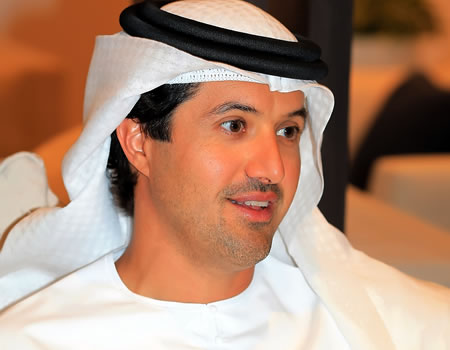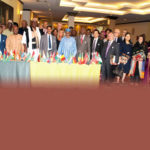
Dubai, United Arab Emirates, has again recorded 8.10 million international overnight tourists during the first six months of 2018, representing a consistent increase on the same period last year.
Figures released by Dubai’s Department of Tourism and Commerce Marketing (Dubai Tourism) have confirmed the continued success of the emirate’s tourism sector, which at the end of 2017 was worth AED109 billion a year.
According to the Director-General, Dubai Tourism, Helal Saeed Almarri, “Attracting 8.10 million visitors during the first half of 2018 stands us in good stead as we accelerate momentum towards our visionary aspiration of becoming the most visited city in the world. The varied offering of Dubai’s tourism proposition has steadily evolved, prudently yet actively responding to market demand and increasing the emirate’s attractiveness among target visitor segments across our key markets.
“We have strategically deployed partnerships to ensure we continue to stay relevant and front of mind to both first-time and repeat visitors, while simultaneously creating steady stream of Dubai ambassadors.
Organically expanding the outreach and impact of this authentic advocacy for the city, our integrated networks across digital, social and mobile-led platforms reflect the future-centric mandate of the 10X initiative introduced in 2017 by Sheikh Mohammed bin Rashid Al Maktoum, Prime Minister of the UAE and Ruler of Dubai to embrace innovation and ensure Dubai stays 10 years ahead of any global city.”
From a regional perspective, Western Europe contributed 21 per cent of the overnight visitor volumes, maintaining its position from the same period last year as the largest source of visitors.
“With double digit percentage increases in visitor numbers in three of the top twenty source markets, France, Italy and Germany witnessed strong increases of 18 per cent, 11 per cent and 12 per cent respectively; a key indicator of successful destination marketing efforts aimed at driving consideration from a wider yet highly targeted spectrum of European traveller segments.
Other levers enabling future growth include the recent introduction of the stopover visa, whereby transit passengers are exempt from all entry fees for the first forty-eight hours of their stay.
Also, future visa regulation changes will offer an added benefit for travellers to the UAE over summer, exempting dependents aged 18 years or below from visa fees – a move that is expected to boost tourist numbers even further.
“The resounding support we receive from our government, public and private sector in Dubai and across the globe is testament to the confidence that we collectively share in the inherent strength, appeal and long-term sustainability of Dubai’s tourism proposition and our ability to deliver exponentially superior traveller experiences to the widest range of audiences.
This collaboration is fundamental to our success, and together we remain dedicated to continuing to drive record numbers of visitors to Dubai, consequently increasing the tourism sector’s impact on the emirate’s economy.
Looking ahead to the second half of 2018, the recent move to implement a Value Added Tax (VAT) refund mechanism for tourists will also ensure the industry’s competitiveness globally and drive further growth in its GDP contribution to Dubai,” concluded Almarri.




